
IYP 不是过眼云烟的新闻网站,我们提供实战能力,这里是值得您反复回看的档案室:iyouport.org
Operating Systems: How to Understand the Modern State
The Anarchist Agency spoke with Eric Lawson, author of The Operating System .
More and more people have seen news reports of record levels of dissatisfaction and distrust of governments and institutions. While many people may refer to specific institutions such as governments, corporations, the military, and the police when expressing their dissatisfaction with the state of the world, these institutions are only part of a larger system designed to control our lives. In every way - it is, the country.
- If you missed Reform or Change? 》
Eric Lawson's recently published book The Operating System provides an accessible and engaging overview of the development of the modern state, drawing a gap between the state and the computer operating systems designed to oversee and control our existence. Provocative equal sign. The Anarchist Agency recently produced an animated short that captures some of the core elements of Eric's book (see below). This article interviews Eric as he explains how the modern state works and why we need to move beyond it.
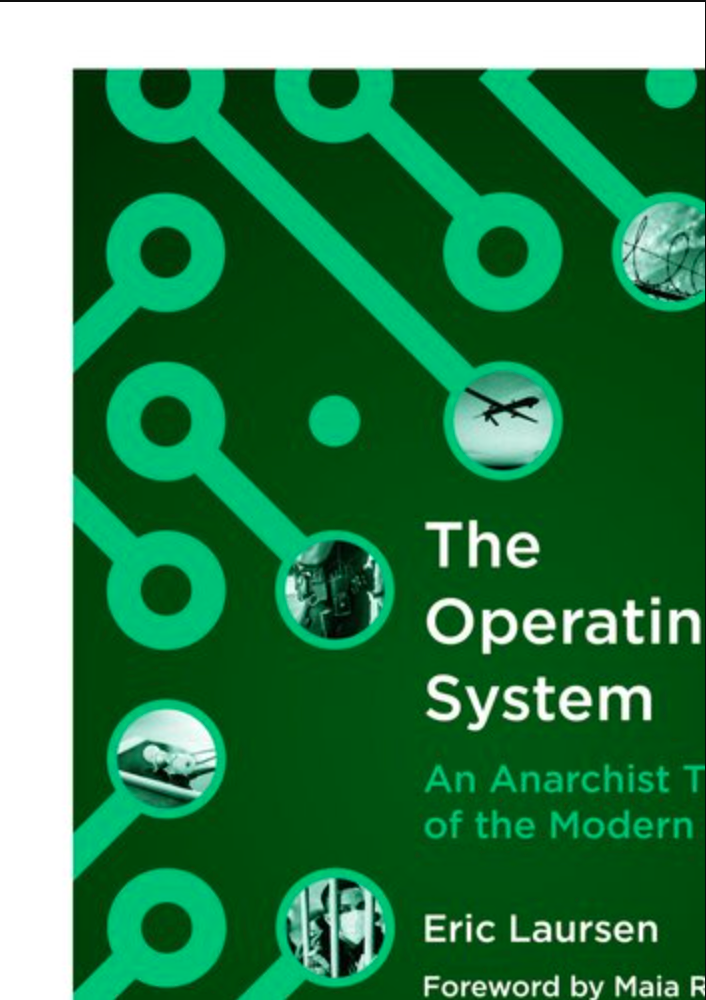
AA: Regarding your recent book, Operating Systems: An Anarchist Theory of a Modern Nation, what inspired you to tackle such a grand subject at this time?
Eric Lawson: Mainly because the subject has never really been done before. I have been considered an anarchist throughout my adult life, and early on I was struck by the fact that the so-called "classic" anarchists - Kropotkin, Bakunin , Goldman et al. - have never analyzed what a state is in an extended way. I have my own ideas, and I find myself agreeing with their basic thesis that it is impossible to overthrow capitalism without overthrowing the state at the same time. But I need a better understanding of the relationship between the two, and there are very few anarchist writings and theoretical systems, and very few in Marxist theory, that give me a satisfactory account of the issue. I've been thinking about this for a long time. My new book is really the result of years of thinking about this issue, and then taking a deeper look at it about two years ago.
Another reason I decided to do this work is that I feel we are reaching a point of crisis in our relationship with these systems (capitalism and the state). Over the past 200 years, they have decided to build an economy that uses a lot of fossil fuels ; they have decided to impose a neoliberal economy on developing countries, disrupting the local economic and social order and causing massive population displacements around the world; It was also their decision to pursue neoliberalism in the developed world, which led to the widening of economic inequality , the hollowing out of communities , and the massive expansion of the financial sector , essentially turning the economy into a casino.
We urgently need a better understanding of the dynamics behind these crises, which are global and real. And this is synonymous with understanding the relationship between the state and capitalism.
AA: Why do you think "computer operating system" is a good metaphor for "country"?
Eric: Because operating systems like Windows or iOS, like nations themselves, aspire to supremacy: all-encompassing, all-knowing, ever-present in our lives. Build a global monoculture and then sell it as a kind of utopia. This is no coincidence, as computer operating systems are the product of nations, developed through intense public-private cooperation in the decades following World War II. Like states, they are one of the defining developments of the modern world that began more than 500 years ago, and they embody many of the ambitions of states themselves.
Let me explain. There are various countries in human history, dating back to Egyptian dynasties, Roman Empire, Chinese Empire, etc. But the modern state is something very special, appearing in Europe around the end of the 15th century. It differs in that, in these new countries - France, England, Spain - initially the monarchs tried to bring together a unified regime, using commerce and finance as tools to gain and expand its power. It's no longer just about armies, tributes, and taxes, it's about the goods you produce, the size of their market, and the leverage they give you to defeat your enemies and expand your power, both internally and externally. That's why I say that the state was the original capitalist and is still the biggest capitalist .
But in order to use this new weapon effectively, rulers need to have greater control over the lives of their people—controlling every aspect of them. As the modern state grows, that means greater control over where people live, how many children they have, what religions people follow, what professions they do, and what people think and believe . Over time, that means more tracking , more surveillance , more regulation, more social engineering , more efficiency, which means more tradition of absorbing people into the nation's infrastructure otherwise, if these traditions hinder the development of the country, they will be destroyed. It also means imperialism and colonization as countries try to incorporate more of the world into their economic and political models. The nation itself is a colonial export—perhaps the most successful list of commodities in world history.
Computer operating systems have the same ambition: to provide a framework for every part of everyone's digital life. We become "citizens" of Windows and "citizens" of Mac iOS. These systems become deep cultures in which we live for longer and longer — not just Mark Zuckerberg and his comrades have their own take on the " metaverse ," but all cultures.
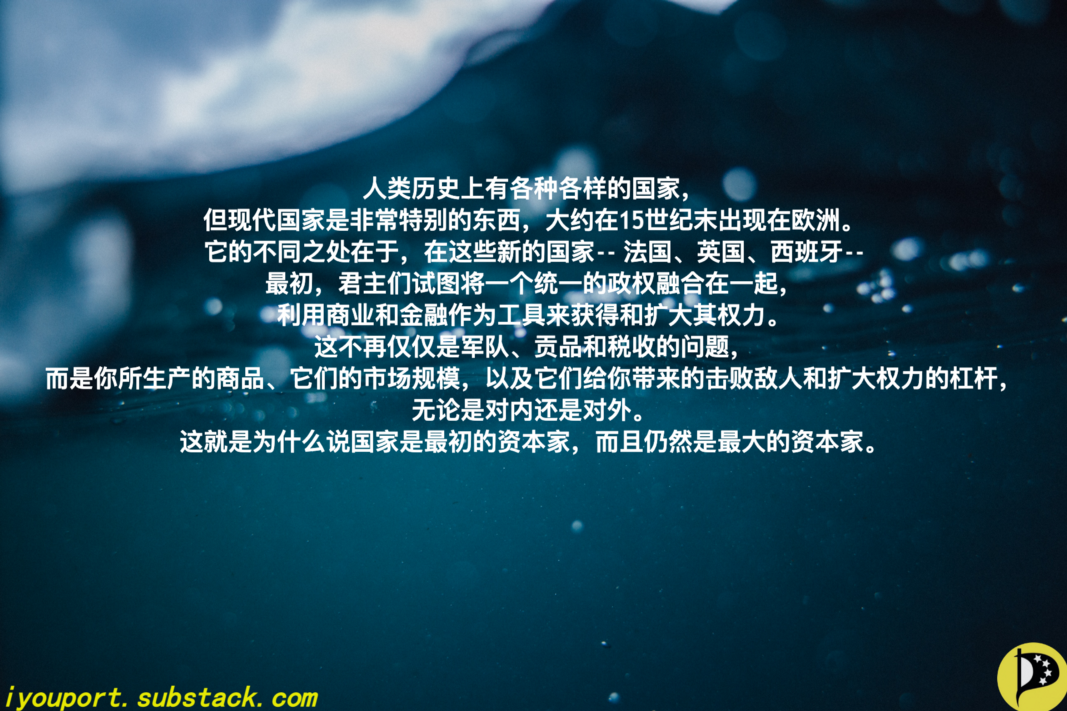
Like these systems, the state wants us all to feel so comfortable in accepting a de facto unsustainable model of existence built on the frenzied extraction and consumption of fossil fuels that exploits poverty and development millions of people in the region and jeopardize our very existence so much that we cannot imagine what it would be like to exist outside of it.
AA: In the book Operating System, you discuss the issue of a core identity group at the center of power in each country. Can you share some examples of these core identity groups and how they have concentrated power in the state?
Eric: There's always something contrived about these core identity groups. Let me give an example of, say, what is called "white" in America. This is actually a very disparate group, not only by skin color, but by class, race, and wealth. But we're taught to see "whites" as a privileged caste, as "true" Americans, as the people most qualified to call themselves Americans -- the "nation" that the country should embody -- despite the fact that white people Basically a concept that has been invented and can be extended to new groups as needed.
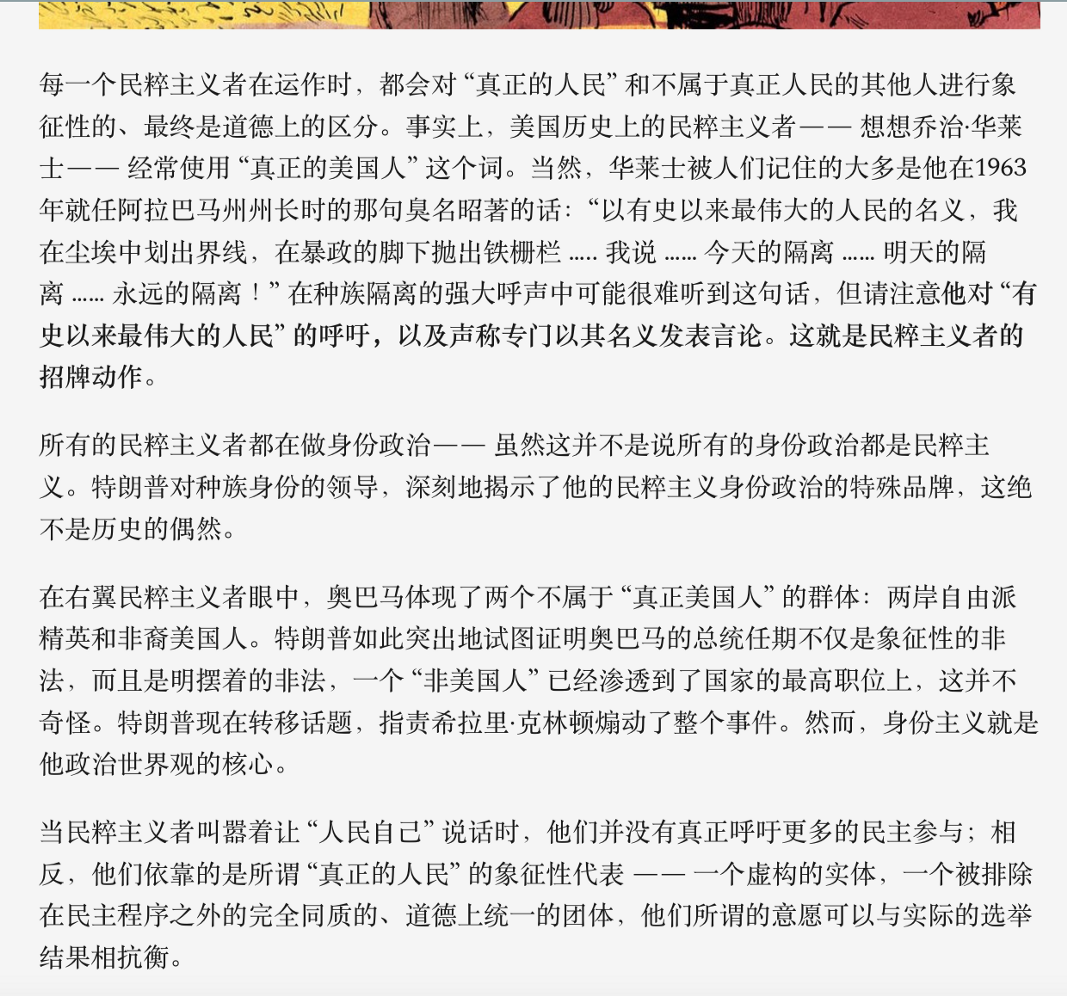
Each country has its own version of a core identity group, dating back to the origins of the modern state. It is actually the group that the state supports, it encourages people to identify with themselves most closely, and it is also the reservoir for the state to acquire each new leadership.
The problem with the concept of a core identity group is that it inevitably excludes some people: in fact, many people are excluded - everyone else is *formed* into an underclass who is forever beating the privileged The door, but can never enter. As a result, the price to the state is racism, sexism, and gender identity discrimination—because women and non-binary groups only *temporarily* belong to core identity groups.
Also, capital needs a "bottom" class to help it keep labor costs down, so this arrangement is also in commercial and financial interests. I want to stress that these are not problems that the state can help us solve. They are peculiar to the state itself, part of its internal logic.
AA: The book The Operating System discusses how states often fail to meet the most basic needs of communities. Do you think there are some areas where the state is particularly failing when it comes to community needs?
Eric: I just mentioned one of them -- racism, which involves targeting and even eradicating the world's remaining Indigenous groups and their cultures. But there are many other problems.
Of course, another problem is poverty. But the state is not designed to eradicate poverty , despite all the resources it has—in theory enough to do so—although liberals and conservatives alike acquiesce in the "trickle down" idea; because it is the foundation of power in the modern world, and because it relies on capital to do so, it is inevitably subject to boom-bust cycles that leave people behind and the state will only bail out the big and ill-gotten criminal.
[Note: Trickle-down economics is used to describe economic policies in which tax cuts for the rich and corporations benefit everyone, including the poor. This proposition believes that the government will reduce or exempt the wealthy class and provide economic preferential policies to enterprises, which will improve the economy as a whole and ultimately improve the lives of the poor people in the society. The proposition opposes taxation to reduce the gap between the rich and the poor in society, and often cuts social assistance to the poor. 】
And, this is without taking into account the damage the system causes to the environment. That's of course another issue; we pay a staggering price for the growth and maintenance of state-based systems that will become devastating as climate threats accelerate.
So I want to stress another thing: the state has no capacity — no incentive to address global warming, nor to reverse it. It has no real incentive to do so, as it would divert attention from its pursuit of rapid economic growth.
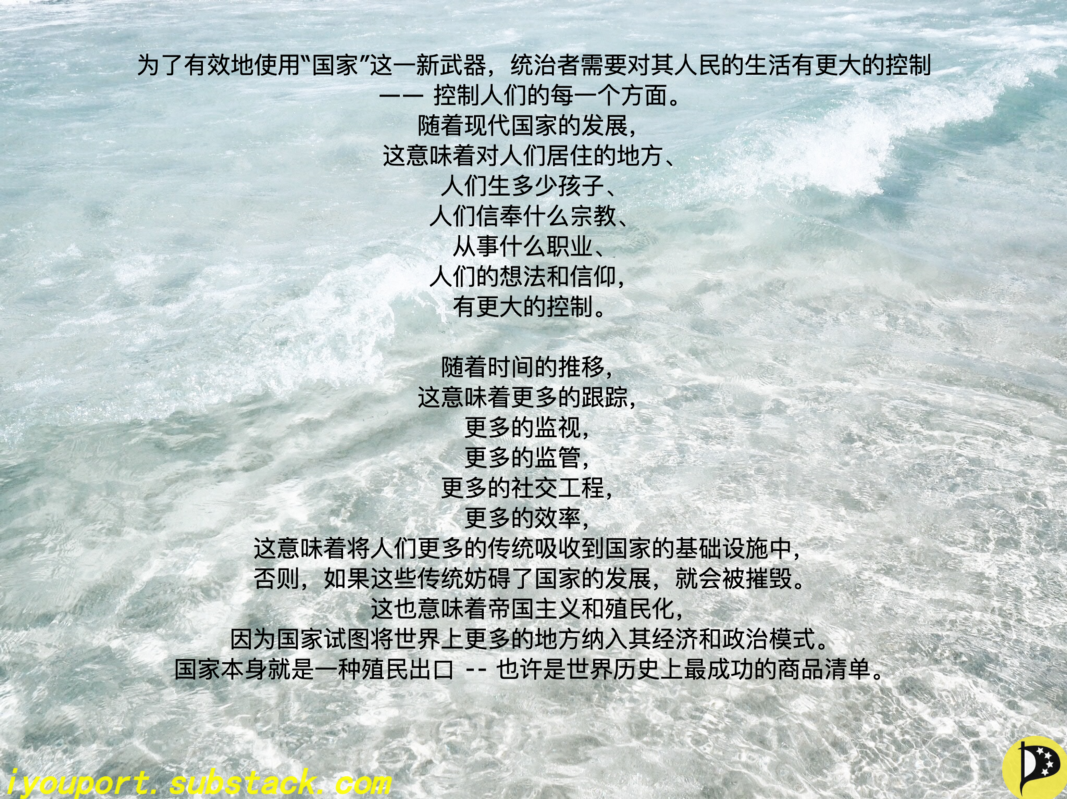
AA: It feels like most people take the existence of the state for granted, as if it were a given. Do you have any thoughts on how agents of the state manage to create so much fear in a stateless society?
Eric: Yes! The state implements its social vision through a combination of hard and soft power and by fostering the loyalty of core identity groups. Of course, we've seen this recently, how Trump is so engrossed in white Americans' sense of themselves as "real American," "ordinary," and how the Brexit campaign in the United Kingdom encourages white Anglo-backed British The meaning of "British" takes a very exclusive sentiment.
But there is a problem. Confidence in government is at historic lows in most so-called advanced economies. Therefore, the state encourages core identity groups to identify closely with two specific institutions: the military and the police force. They are seen as protectors of core identity groups against the so-called other "elements" that threaten them, as defenders of society's best values, like the glue that holds the world of a group of people together, while the state passes Continue to encourage people to feel trapped to gain people's loyalty.
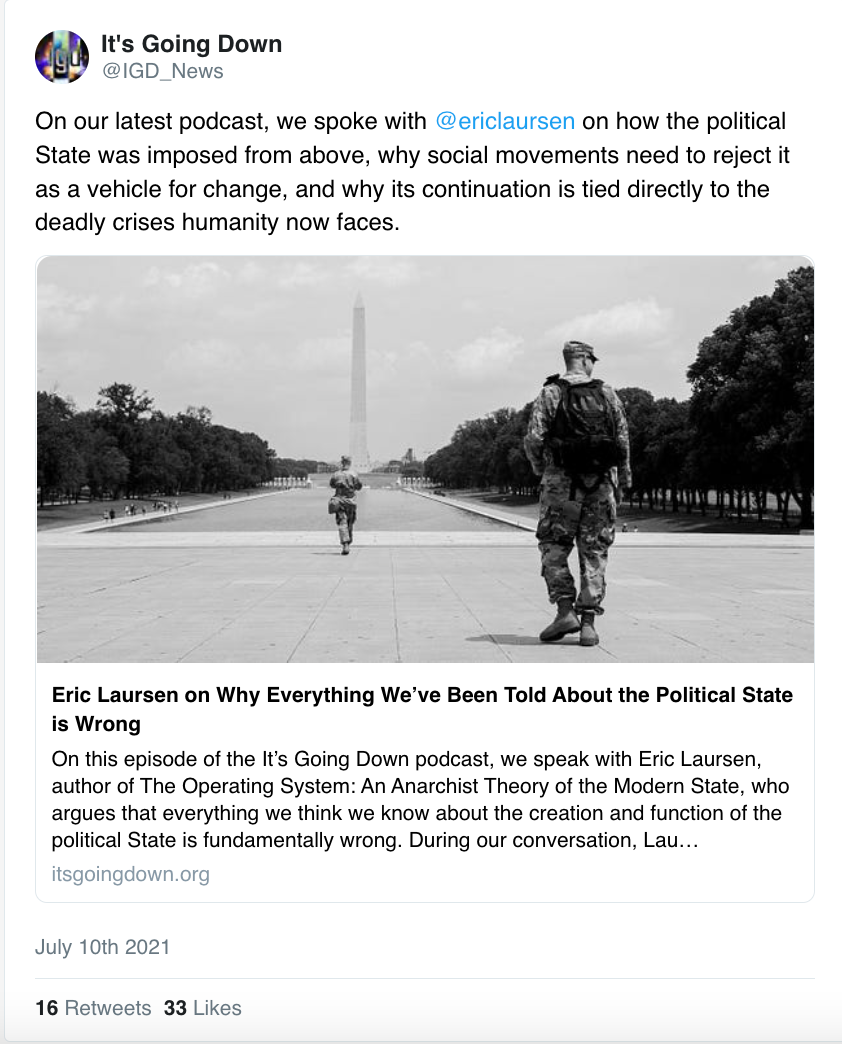
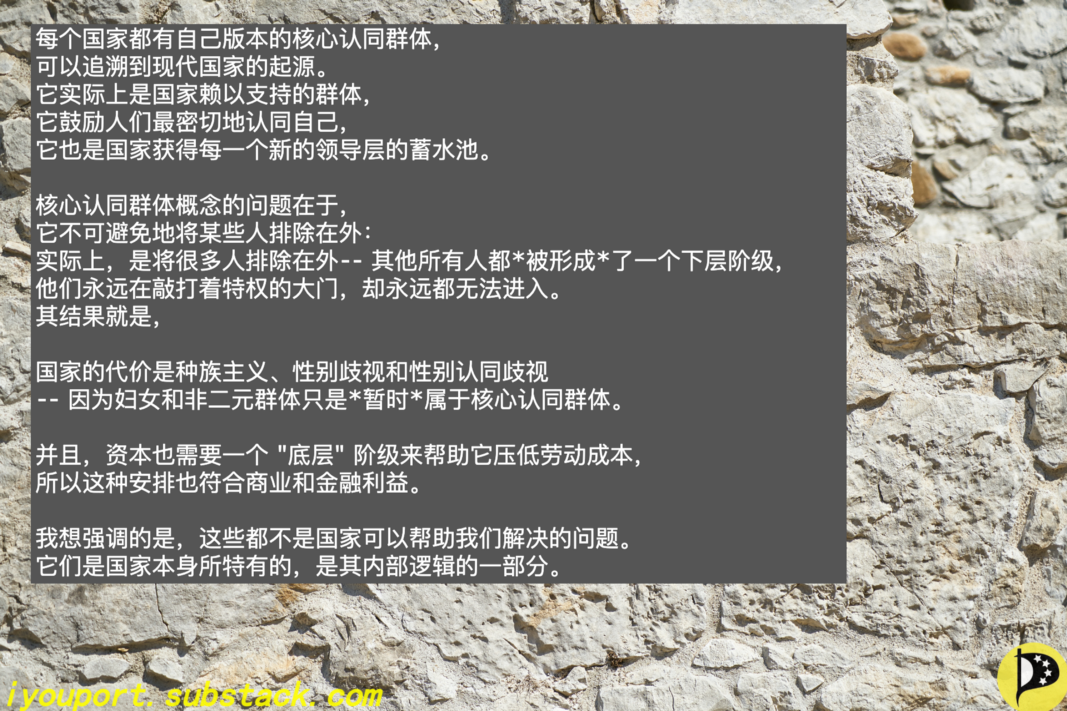
Of course, when all else fails, there is also hard power: the kind of power that is most easily felt by those outside the core identity group. Recently, we've seen more impersonal killing methods by the military , and more military techniques by the police to "maintain order." We have also seen prison populations swell to the point that there is simply no more room for prisoners. But even hard power has a "soft" side: working to assure core identity groups that they are being protected and taken care of.
Since modern times, both hard power and soft power have been part of the mix. But, like everything else in the country, over time these tools and techniques have become more sophisticated and more pervasive. Today, the hard and soft power of the state is everywhere, and in the past few centuries, they have never existed.
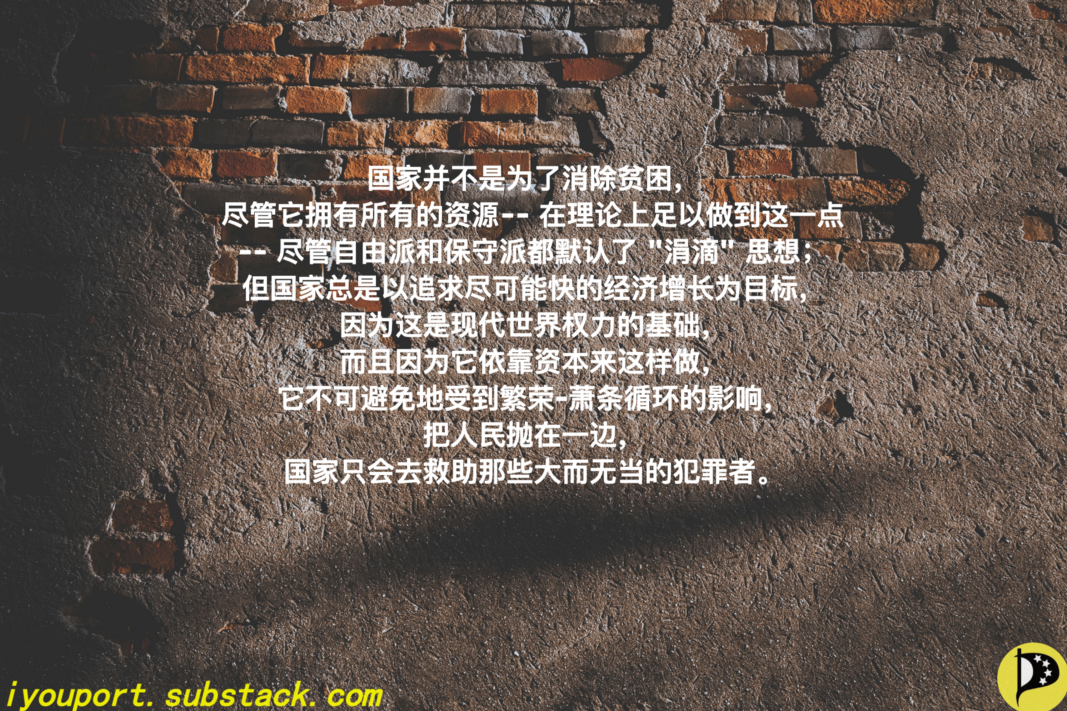
AA: If the operating system is a metaphor for the state, what kind of metaphor is better for the idea of realizing an anarchist society?
Eric: We already have an analogy, in open source systems like Linux, at least in its ideal form. But the problem with numbers is the same as with any other state agency or product, really. The digital world is conceived and designed by collaboration between government and the private sector at the heart of the nation. It was built to achieve the goals of this partnership, not to "set us free" or "create a global community," as some tech tycoons like to claim .
So it's not a question of "knowing how to make the digital culture we want," but how not to let tech tycoons tie us to the production of economic value. As long as the state exists, it will try to thwart our efforts to do so—in this and many others—in order to make us accept the state’s vision of profiteering, intrusion, and domination of the digital future. We don't have to, but regaining an open-source digital culture will require the equivalent of a complete online social revolution .
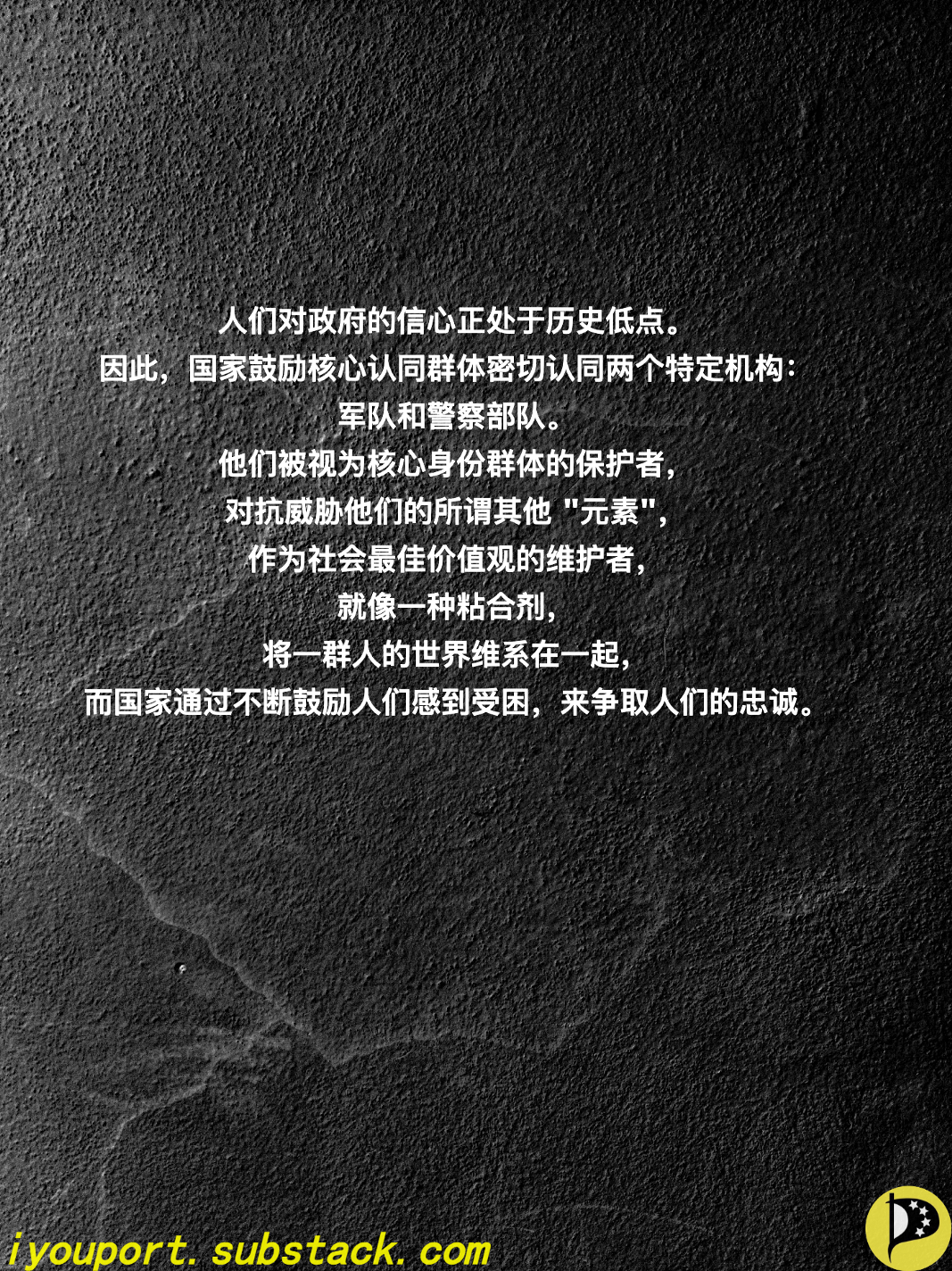
AA: What do you hope readers will take away from your new book?
Eric: It's up to the reader. If you are an anarchist, I hope my contribution will encourage you to think and develop your own ideas about the state. As anarchists, we are well suited to analyze and understand this stuff, because anarchism is the only stream of political thought that does not take the state as a given. We are the only ones who don't automatically find solutions to the world's problems through the state, and we don't think a complex society somehow needs the state to organize itself.
If you're not an anarchist, I hope the book Operating Systems provides a new way of looking at the way the state organizes us and sheds light on some of the problems inherent in the systems it imposes. I hope it encourages non-anarchists to think more broadly about solutions to the problems facing humanity and the planet. People are taught that any collective solution to a problem that does not involve the state and capital "is an impossible form of utopianism"; in reality, the state and capital are our real stumbling blocks.
AA: In society, what needs to be transformed in terms of how people think about and relate to the state?
Eric: First of all, people are used to seeing government and capital as two separate things, often with tensions between them. Of course there are tensions, but what I'm trying to make is that they're really two parts of a single system, what I call the capital state, which is designed to govern all the resources on Earth - including human life - relentlessly The pursuit of wealth creation: everything else is left behind.
But it's also enticing; it offers us humans a 360-degree model of life. If the state makes it so easy for people to accept the system as it is, why bother to think outside the state? But this is of course exactly why we must learn to think outside the country. The state is not just an obstacle to the society we want to have; it replaces the thing we want to have.
We already know what we're going to do, and to some extent we're already doing it: identifying nodes of resistance and forming networks between them so we can get to know each other and organize , e.g. the Standing Rock Movement and Brazil's Landless Rebellion, peasant uprisings in India and BLM , Greta Thunberg's guerrilla war on climate summits and the fight against police abolition . For example, one of the common threads of modern national history is the ruthless war against Aboriginal and minority communities. These are the struggles of everyone who does not want the country to live up to its monocultural vision. So that's absolutely critical, as is building all these connections and alliances. ⚪️
Eric Lawson lives in Massachusetts. He was an anarchist organizer, author and scholar. For many years, Eric has been active in campaigns against war and imperialism and for global economic justice, and is the organizer of the annual Anarchist Book Fair in New York City. This interview is based on his latest book, Operating Systems: An Anarchist Theory of the Modern State (AK Press). Click the link here to download the book.
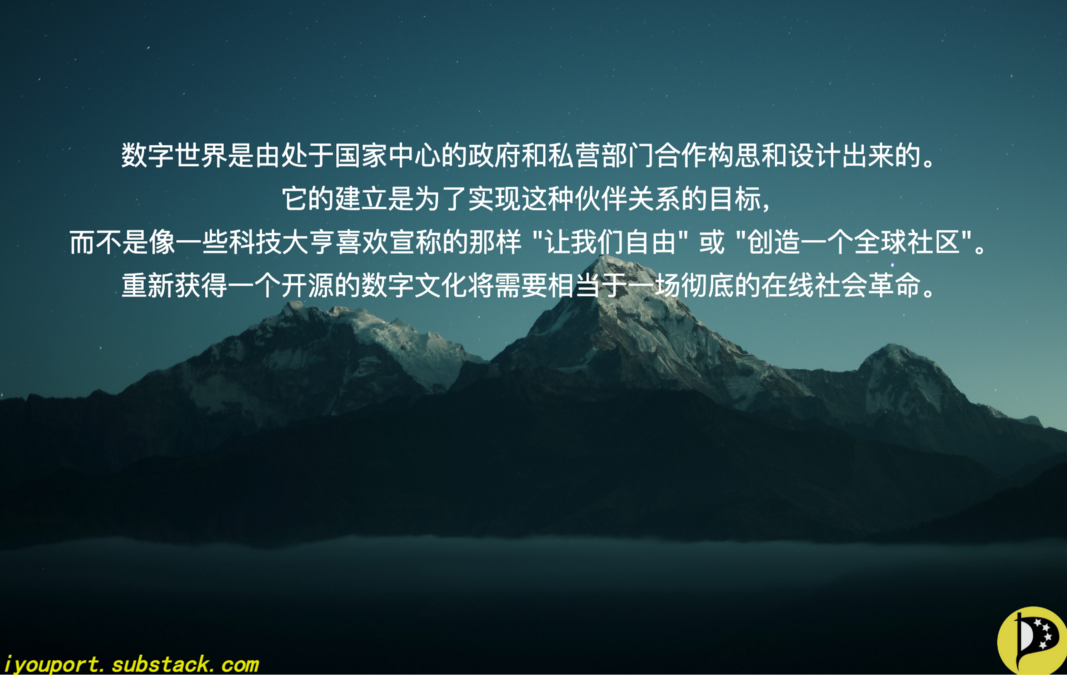
Like my work?
Don't forget to support or like, so I know you are with me..
Comment…